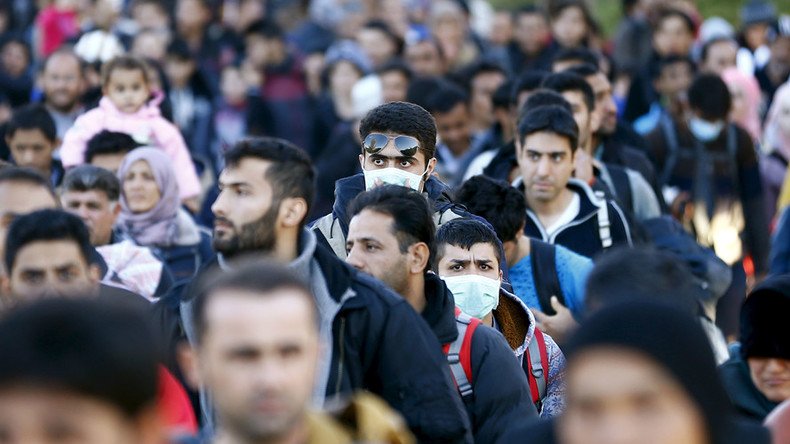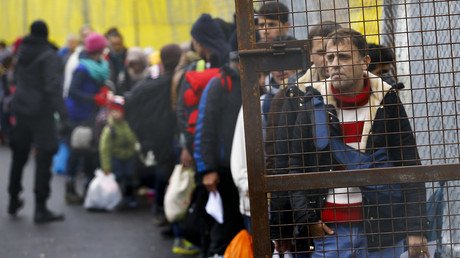Austria to consider state of emergency decree over refugee crisis

A state of emergency decree allowing Austrian authorities to take stricter measures against asylum seekers could be reviewed by the government as early as September, Chancellor Christian Kern has said.
Adoption of the decree depends on the outcome of the negotiations between Austria and Hungary scheduled for early September which will focus on the issue of readmission of refugees and migrants, Kern said in an interview with the Austrian APA news agency.
“Early September, talks between Austria and Hungary at the level of the interior and defense ministers will take place,” Kern told APA, adding that the talks should create the “preconditions for implementing the [state of emergency] decree and sending people back to Hungary.”
Kern added that the decree could be successfully implemented only if similar agreements on readmission are negotiated with Italy and Slovenia.
The draft was prepared by the Austrian Interior Ministry on August 12. If implemented, it would allow Austrian authorities to turn refugees and migrants away directly at the border. Any who entered Austria illegally could be detained and placed in custody even if they had already submitted an asylum request.
The decree sees “a threat to the maintaining of public order and internal security” as a precondition of imposing this state of emergency. Although the text of the decree has not yet been published by the Interior Ministry, Austrian media report that the “polarization of society” and “influence of the refugee and migrant issues on the public peace” could be considered as threats to public security under the ruling.
The rising number of crimes committed by refugees and migrants, as well as the increasing number of attacks on asylum seekers, could also be considered as reasons for the introduction of a state of emergency as they are “indicators of the fact that public peace is jeopardized,” Austrian Interior Ministry spokesman Karl-Heinz Grundbock said, as quoted by Der Standard.
A law allowing the Austrian government to impose a state of emergency if too many migrants attempt to enter the country was passed in May. Under the law, the state of emergency could be introduced for six months and extended for another three separate six-month terms depending on the severity of the situation.
It is expected that a state of emergency would be introduced if the number of refugees and migrants entering Austria this year exceed the cap of 37,500, which was earlier enforced by the authorities for 2016. However, the move could be in breach of EU law if it were proven that it contradicts the European Convention on Human Rights. In such a case, it could be canceled by the European Court of Justice.
In this regard, the Austrian chancellor ordered the Interior Ministry on Monday to “clear” all legal issues as well as to ensure there are technical capabilities for the implementation of the measures envisaged in the state of emergency decree.
Kern also said he is committed to the idea of reducing the refugee and migrant influx and stressed that the number of new arrivals “has significantly decreased in the recent months.” At the same time, he said the situation in North Africa and Turkey may change and that Austria has to prepare for any turn of events that could lead to a renewed increase in the inflow of asylum seekers.
The chancellor once again emphasized the importance of protecting the EU’s external borders and expressed his hope that the EU-Turkey refugee deal will not break down. He also said that if EU borders are properly secured and the refugee deal lasts, Austria may be able to keep the number of new arrivals in 2016 under the cap without imposing a state of emergency.
Austria had accepted 24,260 asylum seekers by the end of July, according to the Interior Ministry. Around 10,000 more asylum requests are still being processed, Der Standard reports. On average, about 3,000 refugees and migrants come to Austria each month. The government expects that the refugee cap could be exceeded in November.
In this context, Kern expressed doubts over whether it would be worth imposing a state of emergency if the cap were to be exceeded only four weeks before the end of the year.














